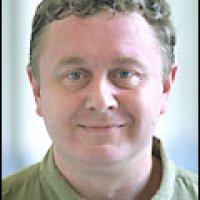Grigoriy Golosov
The St. Petersburg-based political analyst Grigoriy Golosov divided the events of last Sunday in two: what happened in Moscow and what happened in the rest of Russia.
The St. Petersburg-based political analyst Grigoriy Golosov divided the events of last Sunday in two: what happened in Moscow and what happened in the rest of Russia.

The St. Petersburg-based political analyst Grigoriy Golosov divided the events of last Sunday in two: what happened in Moscow and what happened in the rest of Russia. What the two situations share, however, is that in both cases, the government tried to implement a new post-Surkov political system—the creation of a marginally credible "competitive environment," and not just maintain a political monopoly. Golosov believes that the Kremlin’s project was a total failure: "The experimental Moscow elections did not work to the authorities’ advantage, and all other elections were held in the old way, just with more spoiler candidates. Further increasing the advantage of "United Russia," they added even more comical effects to the farce, helping to further discredit the institution of elections." For the full article see: Slon.ru [In Russian].
"Recent regional elections in Russia provoked more interest than usual, mainly because charismatic and controversial opposition leader Alexei Navalny was standing in the Moscow mayoral election. Some results were dramatic, but Grigorii Golosov wonders whether they will make a lasting difference to the political landscape." Read Golosov's latest piece here.


After more than 50 years as a vital part of the Wilson Center legacy, the Kennan Institute has become an independent think tank. You can find the current website for the Kennan Institute at kennaninstitute.org. Please look for future announcements about partnership activities between the Wilson Center and the Kennan Institute at Wilson Center Press Room. The Kennan Institute is the premier US center for advanced research on Eurasia and the oldest and largest regional program at the Woodrow Wilson International Center for Scholars. The Kennan Institute is committed to improving American understanding of Russia, Ukraine, Central Asia, the South Caucasus, and the surrounding region through research and exchange. Read more




